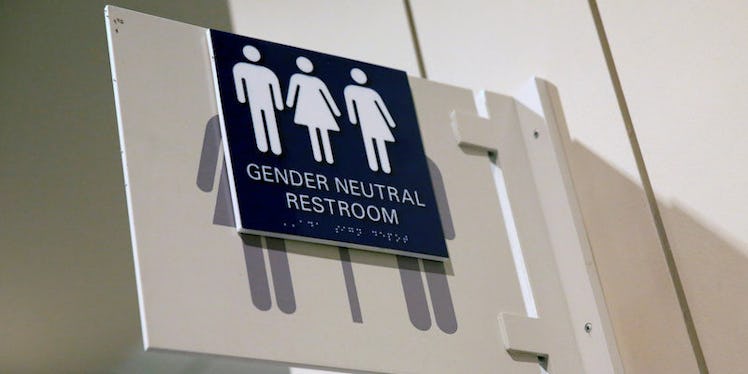
Canada's Gender-Neutral Pronouns Campaign Is Setting A Great Example For Us
Feeling secure in your identity is the key ingredient to having healthy self-esteem. Being seen for who you feel you are inside — despite how you look on the outside — is everything.
Being seen for who you feel you are inside — despite how you look on the outside — is everything.
When it comes to gender identity, for many people, gender exists on a spectrum. It can also be neutral and fluid for some (hence the terms "gender neutral" and "gender fluid"). Yet, the mainstream media and so many influential adults still cater their messages only to men and women or boys and girls.
How deeply alienating this must be for the people who identify as neither?
Thankfully, Canada's "No Big Deal" campaign is working to stop the stigma surrounding gender-neutral pronouns. The campaign encourages people to take the time to ask a person what gender pronoun they identify with before drawing conclusions based on the way that person looks.
For many, however, starting a conversation about gender-neutral pronouns is unfamiliar and intimidating, but "No Big Deal" makes gender-neutral pronouns easily digestible, so all people can understand what it means to be gender neutral.
The campaign's website tells us that using gender-neutral pronouns "can take some practice and getting used to, but it's really NO BIG DEAL."
Can I get an "amen"?
The campaign's creators have even made a series of original infographics that explain why gender-neutral pronouns are so vitally important, and it's pushed its followers to turn the badges and infographics into pins or post them to social media to show their alliance with this impactful campaign.
In fact, I can't wait to post this infographic to Instagram because it so easily explains why gender-neutral pronouns matter:
The campaign also urges people to ask questions about the things they don't understand, instead of jumping to conclusions.
It pains me when people make blind assumptions about my sexual orientation, so I can only imagine how heartbreaking it must feel when a person makes a blind assumption about another person's gender. But sadly, our society tends to only see the world as either male or female.
The amount of times I've kept my mouth shut when people claimed it was "grammatically incorrect" to use gender neutral pronouns — when I already knew the damaging effects of making gender-based assumptions — embarrasses me.
Ultimately, we all need to understand that every time we assume our audience is strictly male or female, we disregard a huge amount of people who don't identify as either.
And being recognized and respected by society for your gender and sexuality is, sometimes, the difference between life and death for so many of us (especially considering the alarmingly high suicide-attempt rate of trans or gender-nonconforming people).
So even though using gender-neutral pronouns might take getting used to, we must remember that the English language is always evolving. As the "No Big Deal" campaign says,
Some say he and she are the only grammatically correct singular personal pronouns, and that you can't change grammar just because it doesn't work for a few people. But languages are living tools created by and for the people who speak them, and when the needs of those speakers change, so do languages. English pronouns have already changed several times in history.
Our history in America has always been a history that moves forward with social change.
So if we find ourselves uncomfortable about using gender-neutral pronouns, it's time to think about how uncomfortable it must be for gender-neutral people to be left out of the conversation and improperly identified every single day of their lives.